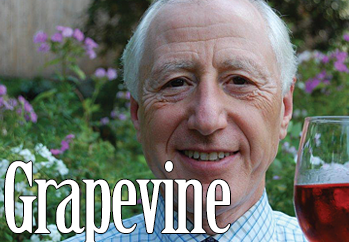Fact or Myth? The Continuing Series on Wine Myth Busters
Opinion Advocates for ideas and draws conclusions based on the author/producer’s interpretation of facts and data.
 Questions abound concerning conflicting information that constantly surrounds us. How do we resolve diametrically opposed news offerings – whether in print, on television or on the internet? How is it that “experts” who state the “truth” can be so polarized when they present the “facts” on a particular news event or subject?
Questions abound concerning conflicting information that constantly surrounds us. How do we resolve diametrically opposed news offerings – whether in print, on television or on the internet? How is it that “experts” who state the “truth” can be so polarized when they present the “facts” on a particular news event or subject?
Ideologies aside, how do discerning citizens get to the underlying facts? Do we have to be forensic experts, ferreting out the truth on our own, or can we rely on select individuals in whom we have built trust over a period of time?
What is fact and what is fiction? What is truth and what is myth?
In this new age of media frenzy, our cravings for real-time news and our blind faith in the plethora of social media outlets have created a society of information-hungry individuals where first to report supersedes vetted information” time and time again.
To make matters worse, misinformation, whether inadvertent or intentional, can gain a foothold and become de facto truth by the mere passage of time.
The media world of wine falls into this category.
In past columns I’ve addressed a number of wine-related “facts” to determine their veracity. Together we’ve demystified subjects as diverse as whether screwcaps are good or bad (good), whether an uncorked but unpoured bottle allows wine to breathe sufficiently (no) and if sniffing a cork provides an indication of its quality (no). (E-mail me for copies.)
Herewith is another occasional installment in my Myth or Fact series on wine “truths” that have been questioned by readers. Whether one relies on word of mouth or the media, there are conflicting – mostly anecdotal – wine-related accounts in the “Bacchusphere” that, in my opinion, warrant clarification.
As in the past, I’ve selected myth-buster topics at random and present them in no particular order of importance or relevance.
The word “Reserve” on a bottle label indicates a higher quality wine. Myth or fact?
The answer is my favorite reply to questions that beg for a simple yes or no response: it depends.
In the United States, it is predominantly a subjective term having no defined meaning. It may be a small batch of wine to which the winemaker has applied additional diligence in nurturing the progression of the wine. It may be produced from grapes that have a unique characteristic, be it a particular vine clone or select plot of land.
The derivation of the term harkens back to the early days of winemaking to denote special wines not offered for commercial sale, which instead were reserved for the winemaker’s personal consumption and distribution. Today, it is mainly a marketing term here and in most winemaking regions across the globe.
However, in Italy, Spain, Portugal and certain other European countries, it is a strictly regulated term used to distinguish wines that have spent a longer-than-average portion of their life being aged. These countries have differing requirements that must be met in order to use the term.
Typically, a wine that has been aged in barrel and/or bottle for two or more years (up to as many as five years or more) may carry this prestigious designation. The premise is that the longer a wine ages in the controlled environment of a winery, the more refined, complex and balanced it becomes.
This is not a universal certainty, but it will typically delineate a particular bottling of wine from its winery brethren. Reserve wines generally carry a higher price tag, presumably due to the increased costs associated with labor and storage – or marketing campaigns.
Coming in future Myth or Fact installments: 1) always use cheap wine when cooking; 2) the older the better: why you should age wine; 3) wine doesn’t pair well with Asian (spicy) food; and 4) Riesling wines are excessively sweet.
Nick Antonaccio is a 45-year Pleasantville resident. For over 25 years, he has conducted wine tastings and lectures. Nick is a member and program director of the Wine Media Guild of wine journalists. He also offers personalized wine tastings. Nick’s credo: continuous experimenting results in instinctive behavior. You can reach him at nantonaccio@theexaminernews.com.
